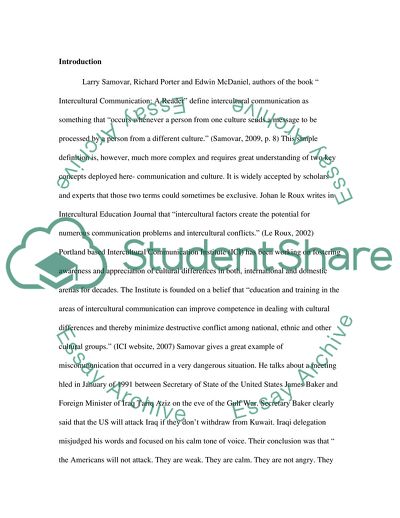Cite this document
(Competence in intercultural communication helps communication in Essay Example | Topics and Well Written Essays - 1250 words, n.d.)
Competence in intercultural communication helps communication in Essay Example | Topics and Well Written Essays - 1250 words. https://studentshare.org/culture/1745986-competence-in-intercultural-communication-helps-communication-in-general
Competence in intercultural communication helps communication in Essay Example | Topics and Well Written Essays - 1250 words. https://studentshare.org/culture/1745986-competence-in-intercultural-communication-helps-communication-in-general
(Competence in Intercultural Communication Helps Communication in Essay Example | Topics and Well Written Essays - 1250 Words)
Competence in Intercultural Communication Helps Communication in Essay Example | Topics and Well Written Essays - 1250 Words. https://studentshare.org/culture/1745986-competence-in-intercultural-communication-helps-communication-in-general.
Competence in Intercultural Communication Helps Communication in Essay Example | Topics and Well Written Essays - 1250 Words. https://studentshare.org/culture/1745986-competence-in-intercultural-communication-helps-communication-in-general.
“Competence in Intercultural Communication Helps Communication in Essay Example | Topics and Well Written Essays - 1250 Words”. https://studentshare.org/culture/1745986-competence-in-intercultural-communication-helps-communication-in-general.


